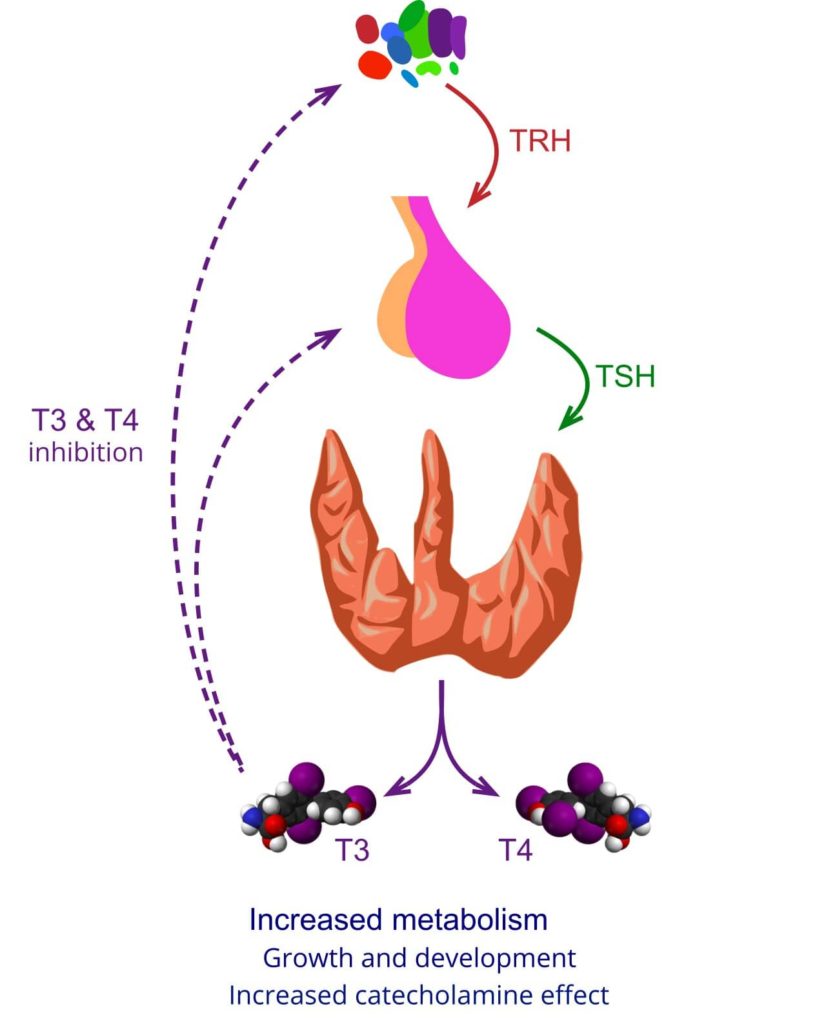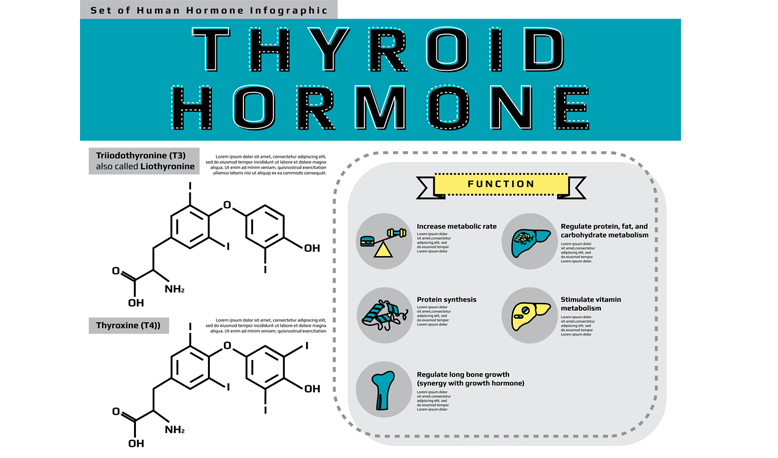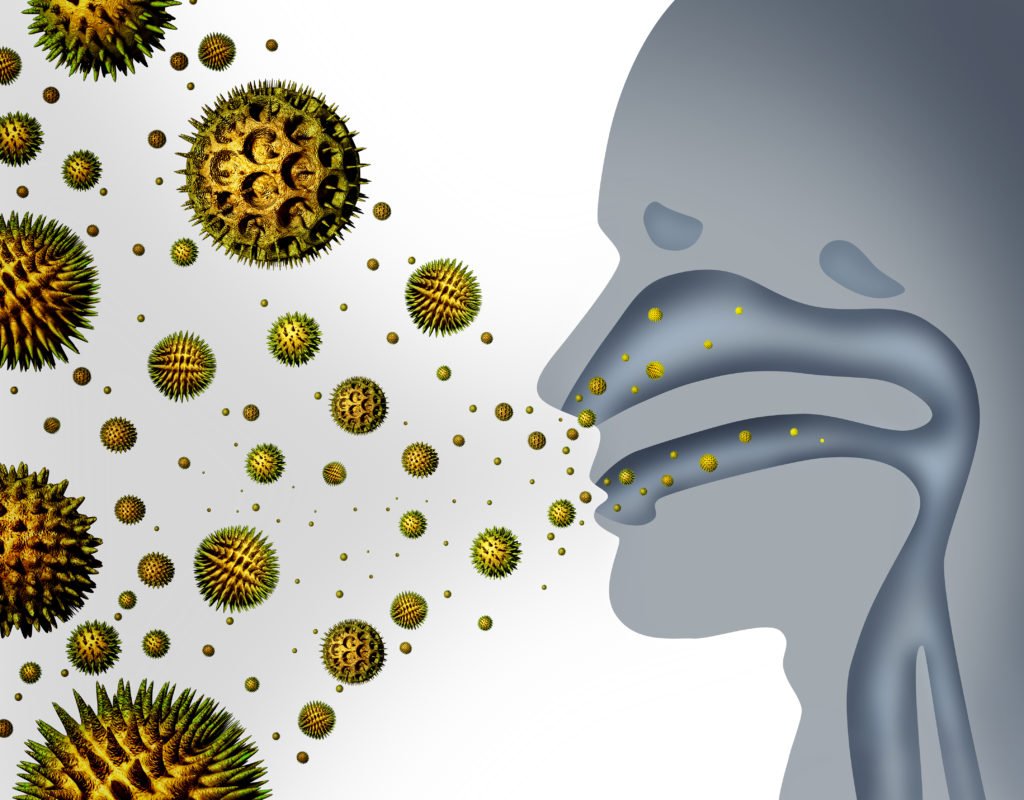“Doc do I have thyroid?” is a common query that patients ask when they are worried about a thyroid disorder. Hypo and hyperthyroidism result when there is an under or over function of the thyroid gland.
Physiology of thyroid

The gland produces two hormones, namely tetraiodothyronine (T4) and triiodothyronine (T3). Thyroid Stimulating Hormone(TSH) secreted by pituitary and Thyrotropin Releasing Hormone (TRH) secreted by the hypothalamus in the brain regulate the production of T3 and T4 via hypothalamic-pituitary-thyroid axis.
T3 & T4 are stored in the thyroid gland and released as per the body’s requirements. These requirements change every day, they are even different between different times of the day. Thyroid hormones regulate the growth and functioning of every system of the body, therefore, the symptoms of the malfunction are diverse and sneaky.
Function of the thyroid hormones

Thyroid hormones are essential for the normal functioning of all systems of the body. Heart, lungs, fat, muscles, bone all are affected by its malfunction. Listed below are the functions of the thyroid:
- Basal Metabolic Rate: This refers to the metabolism at the cellular level, its rate is different for everyone. Thyroid hormones bind with the cell receptors and increase the rate of metabolism. This includes the breakdown of carbohydrates and fat for energy, the build-up (anabolism) of protein. Fat breakdown or build-up both are regulated by the thyroid hormone.
- Heart: The hormones that regulate the heart, cannot act in the absence of thyroid hormones. This is known as the “permissive” effect. When thyroid hormone is in excess, heart muscles become excitable.
- Lung: Thyroid hormones stimulate the respiratory center and increase the respiratory rate. This results in increased Oxygenation.
- Muscle: Responsible for growth and development of muscle fiber.
- Bone: Along with growth hormone, the thyroid stimulates bone growth.
- Brain and nerves: Development of brain and nerves by stimulating axonal growth and formation of myelin sheath along the length of the axons.
This is part two of a series of blogs on thyroid gland. Thyroid disorders are very common, and commoner in women as compared to men. As the thyroid hormones affect the functioning of almost all systems of the body, its disease can have diverse symptoms. Knowledge of the physiology and function of the thyroid gland comes in handy when trying to diagnose these vague and vast symptoms. Consult ENT doctor near by for a quick diagnosis, as with timely treatment, these disorders can be treated easily without much side-effects.


